- From Faith Current: “The Sacred Ordinary: St. Peter’s Church Hall” - May 1, 2023
- A brief (?) hiatus - April 22, 2023
- Something Happened - March 6, 2023
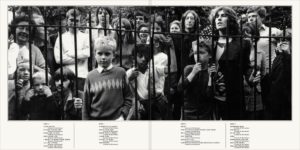
Songs from Beatlemania! Photo from 1968! AIEEEE
Robert Rodriguez, author of Fab Four FAQ 2.0, popped up on my Facebook feed this evening touting an interesting anniversary: Thirty-five years ago tomorrow, on April 2, 1973, Apple/EMI released the Beatles compilations, 1962-66 and 1967-70. Or, as they were universally called, the Beatles Red and Blue Albums, respectively.
Not surprisingly, these two LPs hit like a bomb (they’d sold 1.3 million of both sets by the end of that first year), and for lots of people, they became their introduction to the group. 1962-66 and 1967-1970 were a seminal expression of second phase Beatlemania — and they’re interesting almost in spite of themselves, because you can see the intense, immediate, emotional Beatles phenomenon starting to be transformed (perhaps even sanitized) into memory. These two double-sets were the first instance of an unexpected, intense longing for the group translating into commercial product, and that to me is the key determinant of second-phase Beatle fandom, which I’d date from these albums to the end of Anthology. (Like Anthology, they appeared in response to un- or semi-authorized Beatle content; Red and Blue were a response to a bootleg called Alpha Omega, released in 1972; Anthology was brought to life by things like the Artifacts series.)
Also not surprisingly, I’ve always hated these albums, dismissing them as potted history with a commercial gloss, and every time I’d open the first LP, that photo from 1968 was like nails on my psychic chalkboard. As if the Beatles were the same — as if the world had been the same! Even as a young pup (me: b. 1969), I felt Red and Blue were talking down to the listener somehow, serving up tunes totally stripped of their original context. How could one possibly decode them without all the circumstantial evidence? How could one attempt to return to that time, or at least sense what it might’ve been like, without the context? They were suddenly just songs; this felt to me like a diminishment, and I resented it. It was like the second side of Yellow Submarine, when a private conversation I was having with some older friends was suddenly interrupted by a bunch of instrumental crap. In the track listings, it’s Allen Klein, not Beatles or George Martin or even Brian, deciding what was the best — what was important about The Beatles, and what would last. Or maybe not even that? Maybe just what would sell best in 1973? The first set has no cover songs on it, and I think we all know why that i$.
But I knew so many people who loved these LPs, and certainly they were a huge driver of the mid-70s reemergence of Beatlemania. Anybody out there have any stories/memories/feelings about the set?

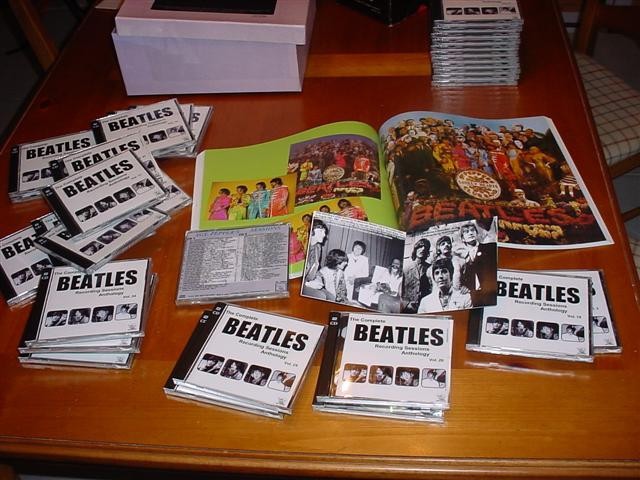


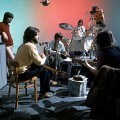
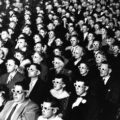

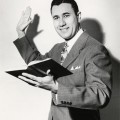
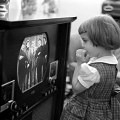
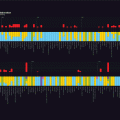
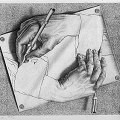
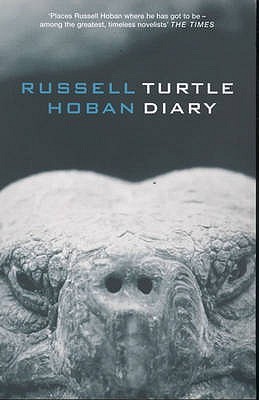

I felt the same way about them. I thought they were some odd curiosity. I thought, why would anyone want to buy those when they can have the actual albums? I basically dismissed and ignored them. It wasn’t until years later that I realized people really loved those albums and it was their introduction to the group.
Hi Mike – really miss you and all the activity round here. Our loss is your magazine’s gain though 🙂
These albums were my introduction to the band. I was born in 1969, and one of the most constant memories of my childhood is, sitting there with both LP covers, noticing the shadows around their nostrils in one picture, the sort of sunken aged look, and the youth of the other picture.
I don’t remember the music – the only Beatles song I played a lot as a child was my mum’s 7″ of “We can work it out”. But I do remember its presence.
Miss you, too, @Tony. BTW, there are plans afoot for a UK Bystander. Watch this space.
The running ordr of the album might make sense, but even today musically it doesn’t flow, nothing in my head’s gonna chang that… somehow it doesn’t fit.
The two albums though were a bomb, what a huge juke box… much better than all that commercial gloss bad sounding reverb stuff the Americans were raised on, only the Beatles second album (crazy rock sound) made sense.
The two albums gave a sense of pride… there were rumours about the Beatles getting together, which increased over the summer, with these two albums in the charts, and Ringo recording his RINGO album, which came out with the wonderful prints of Klaus Voorman lithos. There were solo albums in top of the charts (Red Rose Speedway, Living in th Material World), singles in the top of the charts My Love, Give Me Love, and a little later Photograph.
Thw Red and Blue were a bettr deal than ‘Hey Jude’, but that one was weirder.
Actually Michael, the sales were much higher, or do you seriously think the sales of the Red and Blue album in the USA are the real markers for these sets?
Is there any substantive proof Allen Klein determined the running order, except for some sources mentioning it, which then subsequently are quotd but their sources were never evaluated???. I remember George Martin was involved. Well who cares.
.
I love the arguments you use:
“potted history with a commercial gloss” and
“I felt Red and Blue were talking down to the listener somehow, serving up tunes totally stripped of their original context. How could one possibly decode them without all the circumstantial evidence?”
“How could one attempt to return to that time, or at least sense what it might’ve been like, without the context?”
What you are showing here is the essential marketing problem Apple has. The fans are obviously important for the product, but it is quite strange for a guy like you who was just around four years old when the two sets came out to use thes arguments… you couldn’t even think of it like that without haveing older family or friends using those words, and, because you thought so years later, doesn’t mean it is relevant to the product. It is the problem with a lot of fan discussions, the Beatles matter because they think their illusions about the band, the music and the world in which both existed are relevant to all of the world. Of course it doesn’t. It is the music that matters, the music is the legacy… it is the only verifiable concrete irrefutable evidence, including images and other reports, the thing is are these other images and reports unique… no.The music stands. The red and blue album are proof for that.
.
I will play the sets a few times on spotify today and only hope the listening experience does not get spoiled by memories of a puberty spent in a orthodox christian torture center, called school.
In my opinion whatever worth Red and Blue had at the time has been completely erased since. People who want the hits buy 1, music lovers listen to the original albums, fans listen to Anthology (which has plenty of problems of its own) and Past Masters (which doesn’t), fanatics listen to bootlegs and people who want Beatles playlists create their own on Spotify. I’d bet money that a good chunk of millennial Beatles sympathisers haven’t even heard of Red and Blue. I certainly can’t remember the last time they’ve come up in a music discussion I’ve been part of.
I think you’re right, @Justin. They’ve been superseded.
Hi! I agree with Tony, I miss this blog! Even though I came late. I was hoping someone would do a story about Ringo getting knighted, or Paul being at the March For Our Lives. Anyway…..
I became a Beatle fan in the 70’s through Wings, which led to The Beatles. My Uncle was a huge Beatles fan, so I learned alot through him. I don’t recall having either the Blue or Red albums. I was very into Sgt. Pepper and the meaning of the songs.
My nephew is in college and has recently discovered the Beatles. (I had SOME help, haha) He recently bought the Red and Blue albums (he collects vinyl). I had given him Sgt. Pepper and Abbey Road prior.
Now he says, he wants to collect ALL the albums. So, getting the Red and Blue has only made him hungrier for more Beatle knowledge!
I think if the younger generation gets turned on to the Beatles through the Red and Blue albums, that’s great! If they are truly interested, they will, like my nephew, want to check out all the Beatles material.
Also, Michael, you spoke of context, and the Red and Blue not having the same context as the original albums. Do you think people who bought the albums when they originally came out, who actually experienced Beatlemania, feel the same about those of us who came later? After all, we were not there when the records hit the stores for the first time. We didn’t experience the culture first hand.
@Tasmin, all I can say is that my aunt, who introduced me to the Beatles and nurtured my early fandom, didn’t get my obsession with bootlegs. For her, the group was inextricably linked to her own girlhood, and the era in which she experienced the music. For me, coming later, the experience was fundamentally historical — retrospective — a part of the whole operatic story. And so this or that unreleased track was like another clue to what had happened, what it had felt like. She didn’t get that at all — because she didn’t have to wonder. She’d been there, and had the experiences she’d had.
I do think there are differences between first-generation fans, second-generation ones (post-Fabs, pre-Anthology), and now third-generation ones (Anthology, totally open vaults, Purple Chick on Pirate Bay, Beatles Rockband). What the Beatles ARE is subtly different to each group.
I agree with you Michael, about the differences between first, second and third generation fans.
It’s funny though, my nephew is going through the same questioning about Beatle history and relationships that I did. The other night he texted me and was asking me about Yoko, May Pang, why was John so into Asian chicks (his words), Alan Klein, Brian Epstein, and on and on!
He reminded me of myself asking my uncle questions, 30 + years ago!
John himself answered your nephew’s question in his book, “Skywriting By Word of Mouth.”
Also, I don’t think he’s old enough to hear my opinion on Allen Klein. 🙂
I think the albums have fulfilled their historical role. It helped consolidade and define the band’s canon.But as Justin McCann said, they were superseded by the new environment.
For me, the main problem wih them is that they helped solidify the idea of ”two phases” of the band. And that view is reductionist.
Interesting point. Of course, the “two-phase” view was first put forth by the band members themselves — it’s the touring years, and after.
Just one note: I’m sorry to say that it was actually *45* years ago. Time passes quickly.
___123___Hey Dullblog, the Beatles fan blog » Thoughts on Red and Blue?___123___
This is off topic, but just wondered what everyone out there thought of Paul on Carpool Kareoke? And Paul’s new songs?
Of course, there’s been a ton of articles about Carpool Kareoke, and how moving and wonderful it was. I’ve watched it over 10 Times now! But I’m dying to hear from hey dullblog people!
Also, does anyone else think Paul’s new song, “I Don’t Know” seem like he’s going through a bout of depression? I found it to be very introspective.
Hope to hear from someone!
I’m another newbie disappointed that I came after every everyone else seems to have left. 🙁 But I thought Carpool Karaoke was wonderful and I’m glad it showed Paul in such a good light, I loved reading so much positivity about him. I really like “I Don’t Know”, I couldn’t say if he was depressed, it could have just been a passing feeling put into song but it’s a really good song and he sounds good on it. No he doesn’t sound the same as he used to but he still sounds good on it. Paul really is just a marvel.
MG,
Thanks for your reply. I was just surfing and decided to check out if anyone had responded!
I just heard “I Don’t Know” again this morning on the Beatles Channel. I really like it a lot. I’m definitely going to buy Egypt Station. Yes, Paul could have just been in a funk, or a reflective mood when he wrote it. Maybe I’m projecting! Haha!
I’m very sad this site is deserted. I’ve read through most of the articles and comments. Such great writing and commentary.
It went quite a few years, so maybe there’s just not much else to debate or say. I could talk about The Beatles all day!!
@Tasmin, this site stopped for several reasons. First, I got busy doing The American Bystander — it’s more than a full-time job! Second, I found a lot of the old commenters were gone, and new ones were less willing to play by the rules that had worked so well for a decade; I found myself refereeing a lot, and having to ban people, and got very tired of it. I was losing my temper with people, and that’s not the person I want to be. Third, I think after all the posts, I did say all I had to say about The Beatles; I cannot speak for the others. Fourth, I was suddenly faced with a ton of work updating the design of the site, and just couldn’t carve out the time.
But people do write me, usually via Facebook, and every time someone says that they enjoyed this or that post — or the site as a whole — I think perhaps of devoting more time to it again. If there were a group of great commenters out there who wanted to do HD the way we used to do it in, say, 2011-12), I’d certainly consider moderating and posting a lot more.
On Christmas 1980, I received the Red Album as a gift from my parents. I was 11 years old. We already had “Beatles ’65” and “Sgt. Pepper’s” – which my father had bought when they came out. I still like the Red Album, including the cover layout. But I always felt exactly as you do about the Blue Album. The first half of the Beatles discography lends itself better (or at least less badly) to being anthologized than the second half.
Some things just hit you the right way when you’re young. This is why many Americans still love some of the Capitol versions of early Beatles Albums. “Beatles ’65” is one of my favorite albums of all time – I listened to it since I was about six – but I don’t feel the same way about “Beatles for Sale.” To me, it just feels wrong when “Eight Days a Week” shows up with those other songs…
About the “two-phase” idea (which I agree is reductionist), is it possible that the “This is a new phase Beatles album” remark on the back cover of Let It Be added to the popularity of that idea?
I initially got into the Beatles when it was the 20th anniversary of “Love Me Do” coming out, in October 1982. It was my birthday a few weeks later and my nan bought me “20 Greatest Hits.” The following January, my nan passed away. I love “20 Greatest Hits” just because it was a gift from my nan. Her death hit me really hard, and the Beatles essentially got me through that, and several other things.
With my birthday money, in 1983, I bought “Red” and “Blue”, and the excellent book by Neville Stannard called “The Long And Winding Road”, which was a detailed discography of the UK and US records: it was used as a check-off list as I slowly built up my collection.
I love “Red” and “Blue” for the reminders of that time when, as a 12 year old – fan of the Beatles for a year, I never really had any dislike for them at that point, but I did think that the “Red” tracklist needed revising. The lack of album tracks from “Help”, “Rubber Soul” was a shame. The worst thing for me was that Revolver was ignored, beyond “Eleanor Rigby/Yellow Submarine”. Maybe “Revolver” wasn’t popular in 1973…
To each generation their own.
If Lennon had quit the Beatles in 1962:
https://www.youtube.com/watch?v=Ek89aSrwMN0
Yesterday is an upcoming 2019 British musical comedy film directed by Danny Boyle and written by Richard Curtis, from a story by Jack Barth. It stars Himesh Patel as a guitarist who realizes he is the only person who remembers the Beatles, and becomes famous plagiarizing their songs.
I’ve seen the trailer. This might introduce Beatle songs to a new generation, if there are any generations that need an introduction.